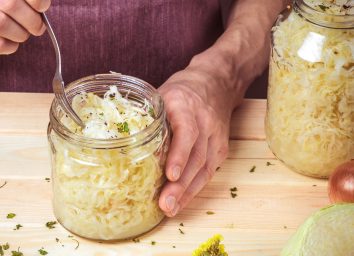The Best Drinking Habits For a Healthy Gut, Says Dietitian

If you suffer from GI issues like constipation, irritable bowel syndrome, gas, heartburn, bloating, or just want to make sure you’re getting more beneficial bacterial to bolster your microbiome, rethink what and how much you drink. Just like what you eat, your beverage choices can also impact the health of your GI tract and overall health.
The GI tract provides about 70% of the body’s immune system cells and is home to an estimated 100 trillion good and bad bacteria. Collectively, these bacteria are referred to as the gut microbiome and recent research has been investigating the role that the microbiome plays in maintaining a healthy immune system, reducing systemic inflammation, improving digestion, and potentially reducing the risk of a wide range of chronic diseases including heart disease, obesity, and even Alzheimer’s disease.
So to protect your microbiome and digestive health, here are the best drinking habits you must follow for a healthy gut. Read on, and for more on how to eat healthy, don’t miss 7 Healthiest Foods to Eat Right Now.
Enjoy a probiotic beverage daily.
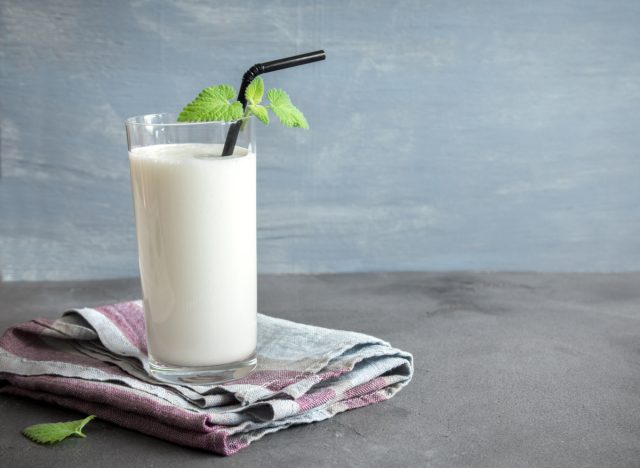
Thanks to increased interest in GI health, there is a growing number of functional beverages that contain probiotics. In fact, most are developed to provide billions of beneficial bacteria to help balance the 100 trillion good and bad bacteria that make up your gut’s microbiome. Probiotic drinks that provide billions of beneficial Colony Forming Units, or CFUs, are best.
Some options to consider: Chobani Probiotic beverages are available in dairy and non-dairy options, and they deliver billions of beneficial bacteria to support immunity, digestion, and GI health. Yakult Light is another option in 2.7-ounce shots that have 25 calories per serving and also delivers billions of Lactobaccilus casei Shirota bacteria.
Enjoy an herbal tea after your main meals
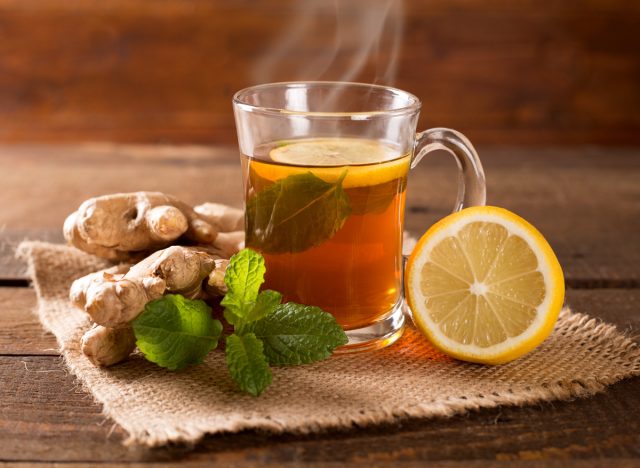
Teas made with herbs, spices, or fermented plant-based compounds have been used for centuries to soothe GI tracts and act as a digestive aid. After meals, in many cultures, a cup of herbal tea is served at the end of the meal as a digestive aid. Common teas with proven GI tract health benefits include mint, ginger, chamomile, turmeric, lemongrass, and fennel tea.
The beneficial phytonutrients, oils, and other bioactive compounds in the plants are thought to be how they provide their health benefits. Ginger has long been studied and is known to help prevent nausea and vomiting among pregnant women. And studies show that chamomile helps to relax the digestive tract to help treat gas, indigestion, motion sickness, nausea, and vomiting. For the best effect, enjoy a soothing and relaxing cup of herbal tea after your main meals.
Consider kefir
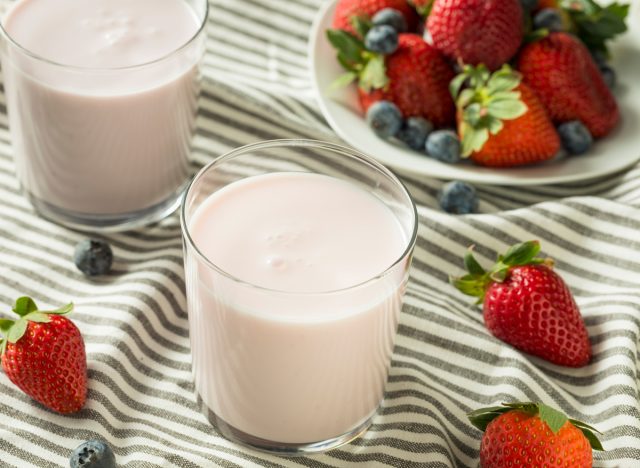
Kefir is made by fermenting milk (cow, goat, or even non-dairy beverages) with kefir grains. The end result is a fermented beverage that is packed with myriad probiotics and other bioactive compounds. Kefir grains are known to have more than 60 different strains of bacteria, so many experts believe kefir is a more potent probiotic beverage than traditional yogurt.
During the fermentation process, many beneficial bacteria including Bifidobacterium bifidum, Streptococcus thermophilus, Lactococcus lactis, among others, work their magic transforming the nutrients in milk into bioactive compounds that are beneficial for our health. According to published review articles about kefir, researchers report that the unique fermented beverage provides a wide variety of potential health benefits including reducing inflammation and possessing anti-cancer, cholesterol-lowering, and blood pressure-lowering benefits.
Pump the brakes on alcoholic beverages.

One of the best drinking habits for a healthy gut is to limit alcohol. When you binge drink or have more than the recommended 1 drink per day, your GI tract and liver suffer from inflammation. This inflammation can lead to alcohol-induced organ damage. Alcohol negatively alters the microbiome and studies suggest that it can increase the permeability of the intestinal lining, which reduces immunity and may have many other health consequences. Avoiding alcohol is best for your GI health but if you do drink, stick with the public health recommendation to limit alcohol to no more than
Enjoy more H2O.
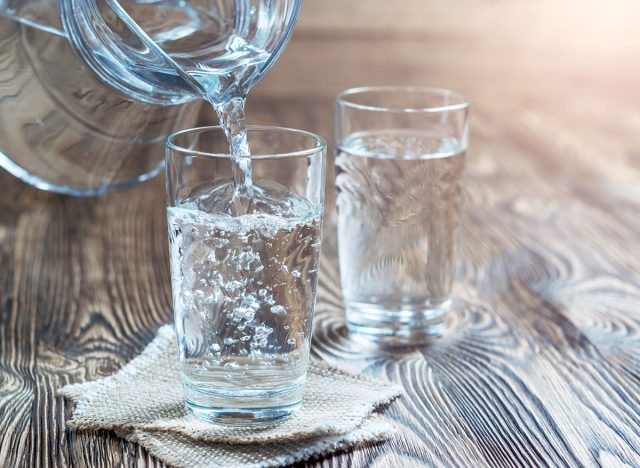
Water makes up the vast majority of your body’s total weight and every bodily function at the cellular level requires water, so it should come as no surprise that an optimal daily intake of water is essential to maintain a healthy GI tract. Water can help you maintain regular bowel movements and can help speed up your metabolism.
To determine how much you need, count on about half your body weight in fluid ounces of water each day. If you weigh, 150 pounds, you’d strive to drink 75 ounces of water daily or 9, eight-ounce glasses of water per day. While all fluids count toward your daily water requirements, it’s best to make at least half of your total daily fluid from water. Try drinking two glasses of water before your meals. Not only will it help your digestion, but it’s also been shown to help people reduce the number of calories that they eat at their meals.
Read these next:
